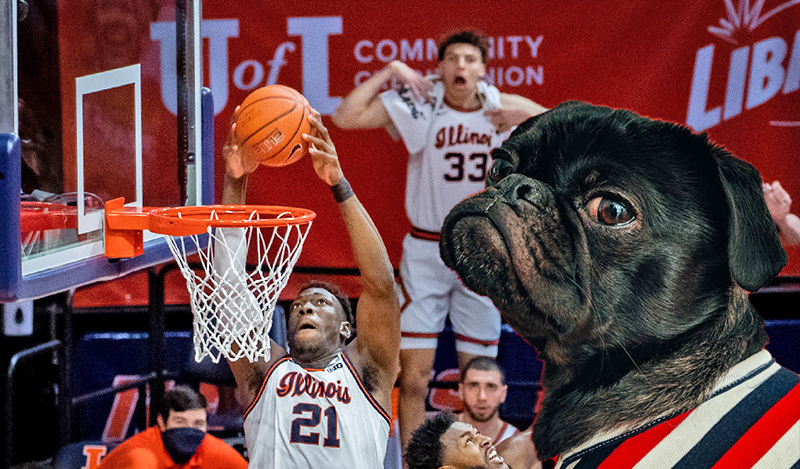March Vaxness?

Right now with the pandemic, I don’t think a day goes by when I’m not thinking about vaccines. Granted, a big part of my job is vaccinating your furry family members to help keep them healthy and maintain their legal status, but with most of us having “Moderna/Pfizer versus Johnson & Johnson” or “one- or two-shot protocols” swirling in our head, I’m hoping to review a little bit about vaccines and their importance while I take a break from working on my NCAA bracket.
What Is a Vaccine?
I’m sure this is common knowledge at this point, but as a reminder, a vaccine is a composite of either a dead or modified-live version of a virus or bacteria that you expose the body to so the immune system to be able to quickly build a response if or when exposed to the actual virus or bacteria in the future. (We will not worry about the newer mRNA vaccines, as at this time the veterinary field does not use them.) Using a sports analogy, you can think about vaccines as giving the immune system a little practice with a disease, so it will be ready for game day.
When Do You Booster Vaccines?
In order for a vaccine to work, the immune system needs enough exposure to build up long-term immunity. That means, when the body is exposed, it not only remembers the disease, but can build a defense quickly, before the disease causes significant illness. Sometimes you need more than one practice session to master that layup; it’s the same with the immune system. Some immune systems need more practice than others. This mostly pertains to puppies and kittens: their immune systems are less developed, so they require more practice than an older more “skilled” immune system.
Why Do Some Vaccines Last Longer Than Others?
It can get a little confusing to know how long each vaccine last for. Some vaccines, such as canine and feline distemper, can provide immunity for up to 3 years in most adult pets. Others (e.g., leptospirosis and feline leukemia) need boosters every year to maintain adequate immunity. This is because the immune system is better at remembering certain diseases than others. Some people will never forget how to shoot a free throw, but it will probably take a lot more practice to maintain that hook shot.
What Vaccines Should My Pet Have?
Ultimately, you should discuss this question with your vet. Recommendations will vary based on your pet’s lifestyle and geographical location. Here is what we currently recommend for the average dog and cat that live in Chicago:
Dogs: DAPP (Distemper virus, Adenovirus, Parvovirus, and Parainfluenza virus), Leptospirosis, Bordetella, and Rabies
Cats (indoor only): FVRCP (Feline Viral Rhinotracheitis, Calicivirus, and Panleukopenia) and Rabies
When they are current on these vaccines, your dogs’ and cats’ immune systems will be ready to fight and win on the big game day.
Let’s hope our Illini are ready to do the same! I-L-L
Alyssa Kritzman, DVM
Photos by Fred Zwicky, © Board of Trustees of the University of Illinois, and Charles Deluvio on Unsplash
